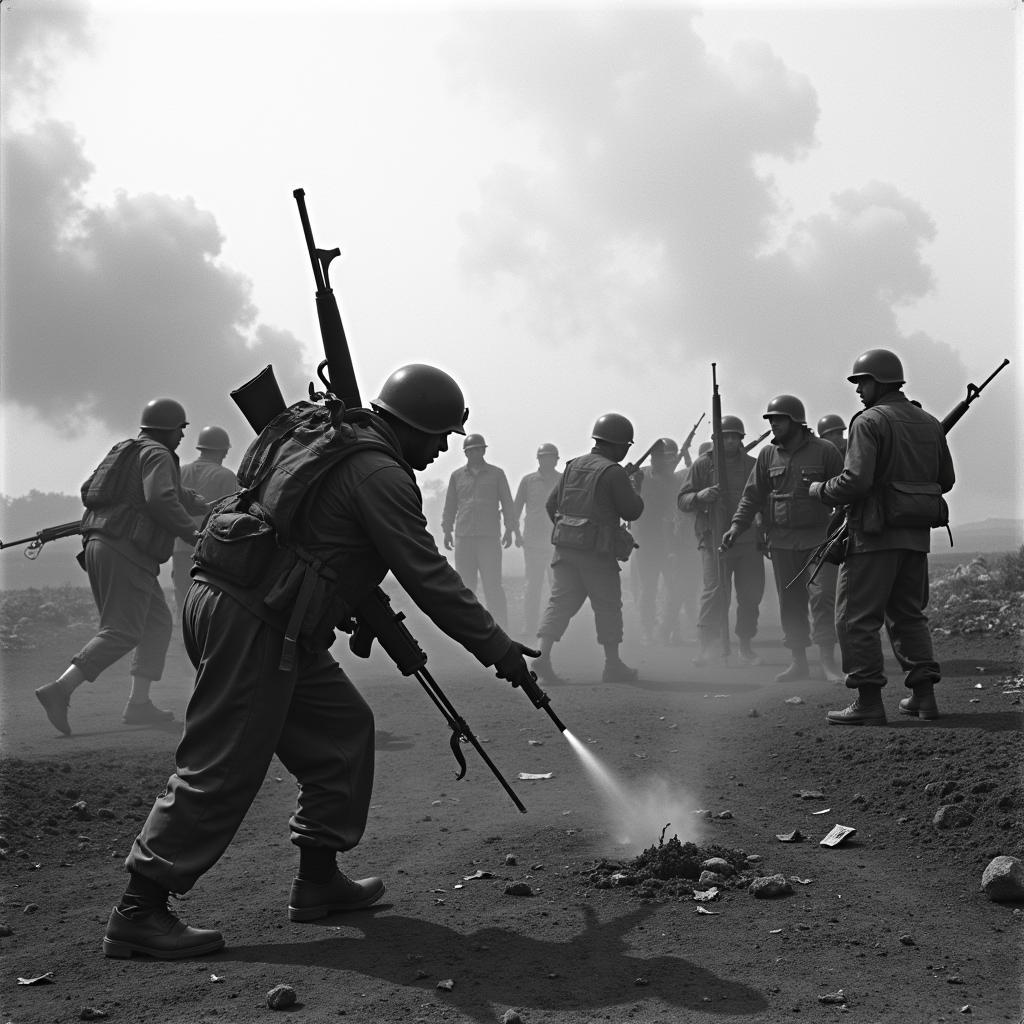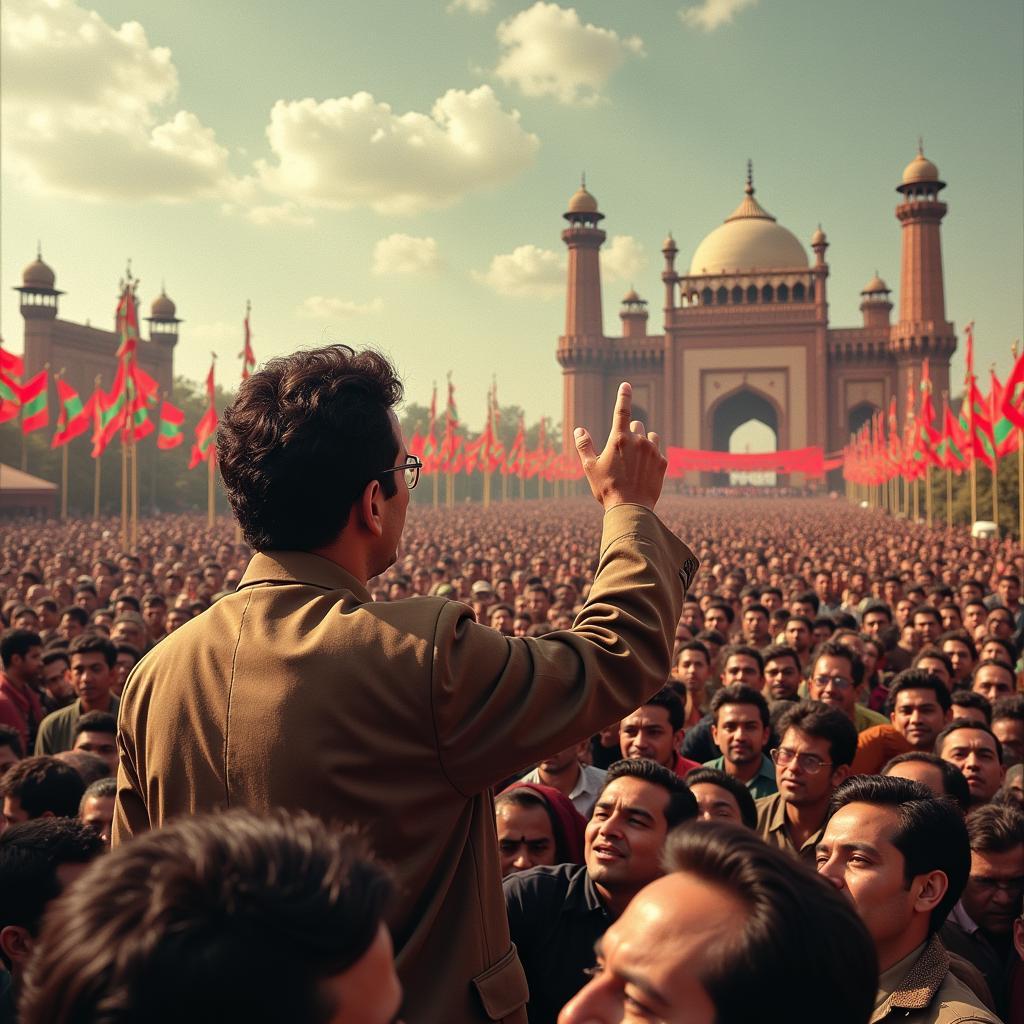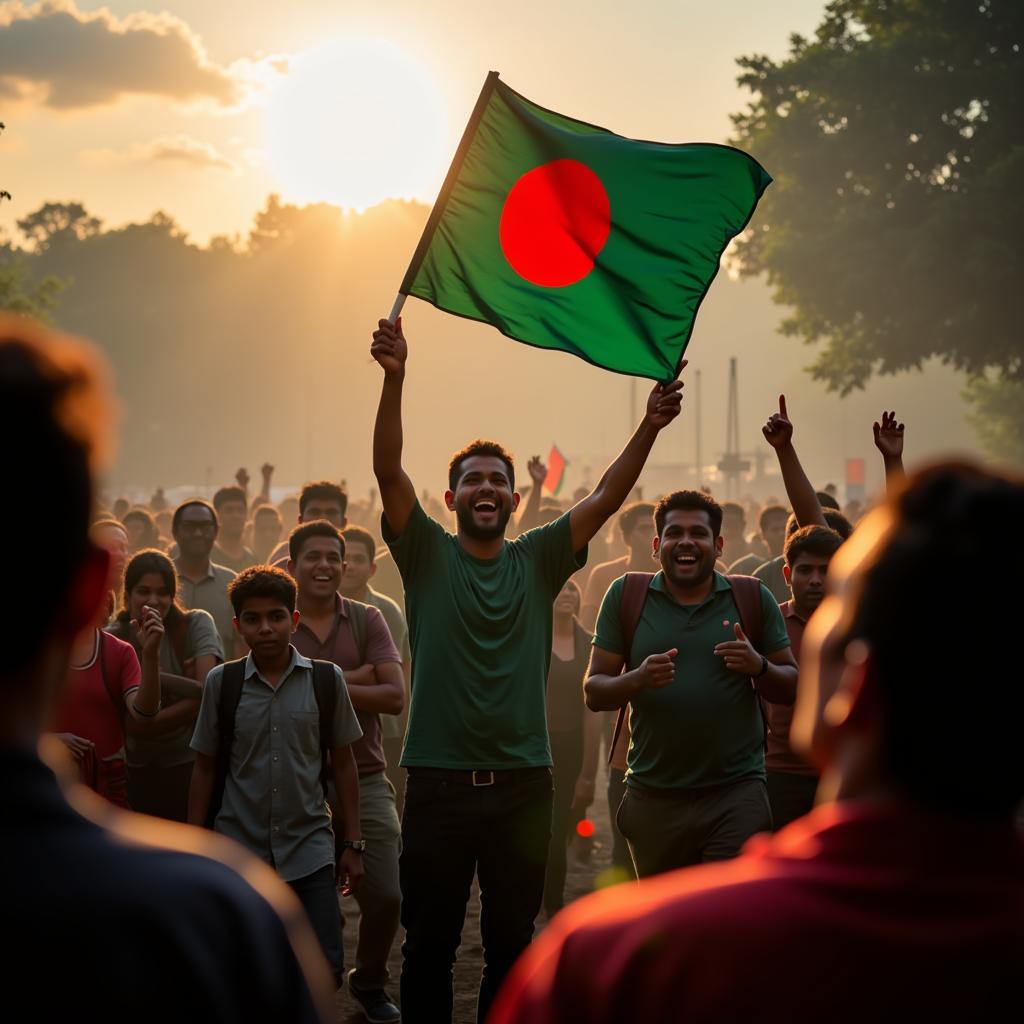The year 1971 witnessed a tumultuous period of upheaval and liberation as the people of Bangladesh fought for their independence from Pakistan. This pivotal moment in history, etched in the memories of millions across Bangladesh, Pakistan, and India, continues to shape the geopolitical landscape of South Asia.
 The Bangladesh Liberation War of 1971
The Bangladesh Liberation War of 1971
A Nation Divided
The seeds of the 1971 conflict were sown long before the first shots were fired. Following the partition of British India in 1947, East and West Pakistan, though geographically separated by over 1,000 miles, were united under the banner of Islam. However, cultural, linguistic, and economic disparities between the two wings fueled growing discontent. The Bengali language movement of 1952, brutally suppressed by the Pakistani government, became a potent symbol of Bengali identity and resistance.
 Sheikh Mujibur Rahman addressing a crowd
Sheikh Mujibur Rahman addressing a crowd
The Rise of Bengali Nationalism
The Awami League, led by Sheikh Mujibur Rahman, emerged as the voice of the Bengali people, demanding autonomy and respect for their cultural heritage. The landslide victory of the Awami League in the 1970 Pakistani general election sent shockwaves through West Pakistan, which refused to recognize the results. The subsequent crackdown on Bengali civilians, intellectuals, and political leaders by the Pakistani army ignited a full-blown war of liberation.
India’s Intervention and the Birth of Bangladesh
As the conflict escalated, millions of refugees fled across the border into neighboring India, creating a humanitarian crisis. India, deeply sympathetic to the plight of the Bengali people, provided military and diplomatic support to Bangladesh. The Indo-Pakistani War of 1971, a 13-day conflict that witnessed fierce battles on both eastern and western fronts, culminated in the surrender of Pakistani forces in Dhaka on December 16, 1971. With the birth of Bangladesh as an independent nation, the world witnessed the triumph of the human spirit against oppression and the redrawing of the map of South Asia.
 Bangladeshi People Celebrating Independence
Bangladeshi People Celebrating Independence
Legacy of 1971
The events of 1971 continue to resonate deeply in the collective consciousness of Bangladesh, Pakistan, and India. Bangladesh, emerging from the ashes of a brutal war, has made significant strides in its socio-economic development. The spirit of 1971 serves as a constant reminder of the indomitable human spirit and the importance of unity, resilience, and the pursuit of justice.
FAQ
- What were the main causes of the Bangladesh Liberation War?
- What role did India play in the 1971 war?
- What are the long-term implications of the 1971 war on South Asia?
For further assistance, please contact us at:
Phone: +923337849799
Email: [email protected]
Address: Dera Ghazi Khan Rd, Rakhni, Barkhan, Balochistan, Pakistan.
Our customer service team is available 24/7 to assist you.